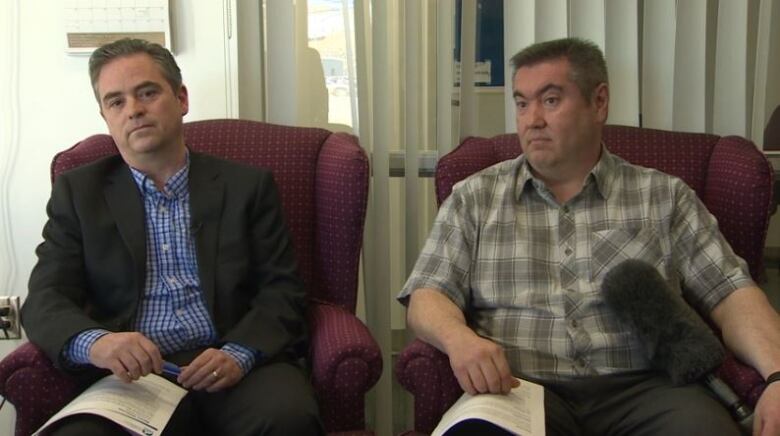Inuit values, inmate care, focus of new made-in-Nunavut Corrections Act
The new act replaces legislation taken from N.W.T.'s 1973 Corrections Act

Nunavut's new Corrections Act focuses on Inuit participation, mental health for inmates, and creates an independent oversight position for the care of inmates.
The act received royal assent this month in the spring sitting of Nunavut's Legislature, but none of it will come into effect until the oversight job is filled and policies related to the act are written.
Bill MacKay, the deputy minister for Nunavut's Department of Justice, says that will probably take about a year, though the department has already started looking to fill the position.
The investigations officer and their deputy will be independent rather thangovernment of Nunavutemployees,though most of their oversight decisions will be referred back to the government's director of corrections to act on or not.
There are two instances where the officer's decision will be final. The officer can review and have final say on a decision to put an inmate in administrative segregation most often administrative segregation is when an inmate asks to be segregated for their personal safety.
The second is when reviewinga disciplinary hearing, which can add timeon to an inmate's sentence or prescribe segregation as a punishment.
When ahearing decides on segregation as a punishment,the inmate can write to the investigations officer for a review.
The details of how an inmate would ask for a review are something that will be worked out in the policies and regulations that are still to be written, but MacKay saidhe hopes itwill bea simple process one that doesn't require the help of a lawyer.
Deputy director of corrections, Henry Coman, says corrections staff could also help inmates with preparing written materials or the general process, if they ask.

The investigations officer has broad powers to compel witnesses to provide information and ask for evidence.
They will mainlyoverseespecific cases, but the role can also look at larger systemic problems they might see in the correctional system. For example, the law will require the officer to review disciplinary procedures within two years of starting the job.
The role oversees incarceration and rehabilitation other justice issues like police conduct aren't part of the role'sfocus though MacKay says he sees the potential for those issues to crop up during their work.
"They could certainly make recommendations about policing. It probably would fall within their mandate," MacKay said."But what they [write] wouldn't be obligatory for the RCMP to follow."
Inuit values committee
The law also requires establishing an Inuit societal values committee, which will advise on new programs and corrections policy.
The committee will have Inuit from all three regions nominated by the regional Inuit organizations and be available for corrections staff, as well as inmates, to consult.
"We've also put in a very well-defined and strong role for elders in the legislation in terms of their counselling to inmates," MacKay said.
The law gives elders the same rights as lawyers in terms of access to inmates without anyone else listening in, for the purposes of counselling.

MacKay says it's part of a larger emphasis on mental health in the act, which requires mental health be treated like any other health concern.
"If inmates have mental health issues, they need to be addressed by the correctional system but it doesn't go into any details about how that should be done," MacKay said.
The "how" will be addressed in regulations and policy down the line. Coman says the department is considering staffing a mental health nurse position in the Baffin Correctional Centre.
Act a long time coming
"Nunavut is probably one of the more progressive regimes in terms of its corrections legislation now," MacKay said.
But the changes have been a long time coming. Nunavut ported over its first Corrections Act from the Northwest Territories' 1973 act.
Nunavut made some amendments to its corrections laws in 2015, because parts of the act were so dated they were unconstitutional. For example, it allowed using restraints, such as sedative drugs or straight jackets,for inmates.
"We didn't avail ourselves of that, but we needed to make those amendments," MacKay said.
Consultations on a whole new act began in 2016, but the first version of the act didn't get passed before the last election, so the Corrections Act was reintroduced in the new government with some changes, this time as Bill 1.
Construction has begun on the new Qikiqtani Correctional Healing Centre, which will replace the problematic Baffin Correctional Centre.
The first phase of the jail is expected to be completed in 2021.












_(720p).jpg)


 OFFICIAL HD MUSIC VIDEO.jpg)
.jpg)



























































































